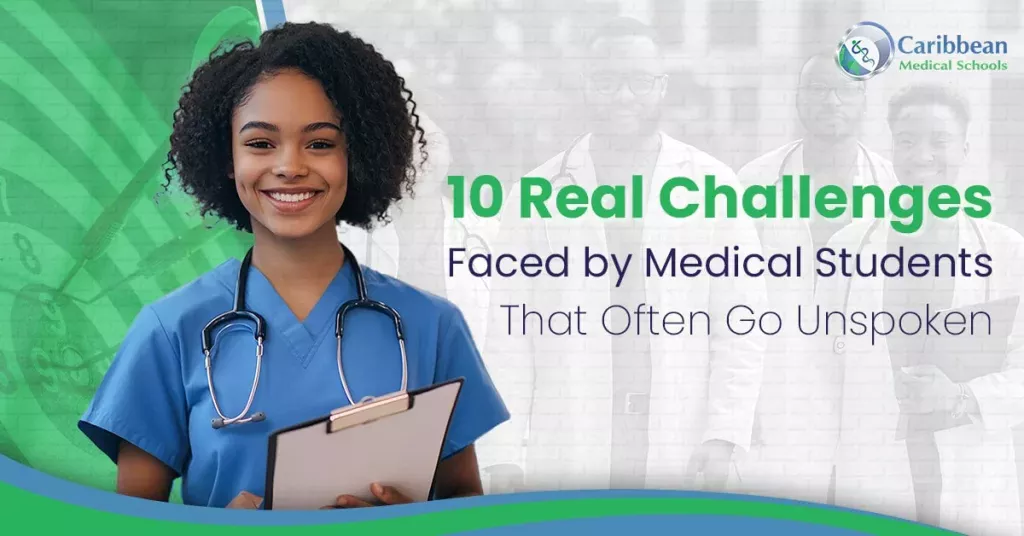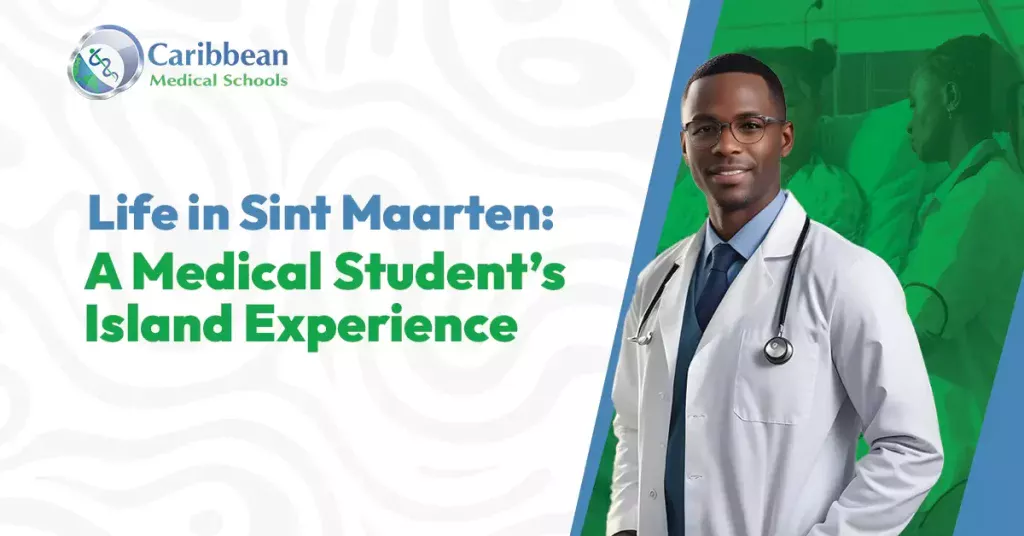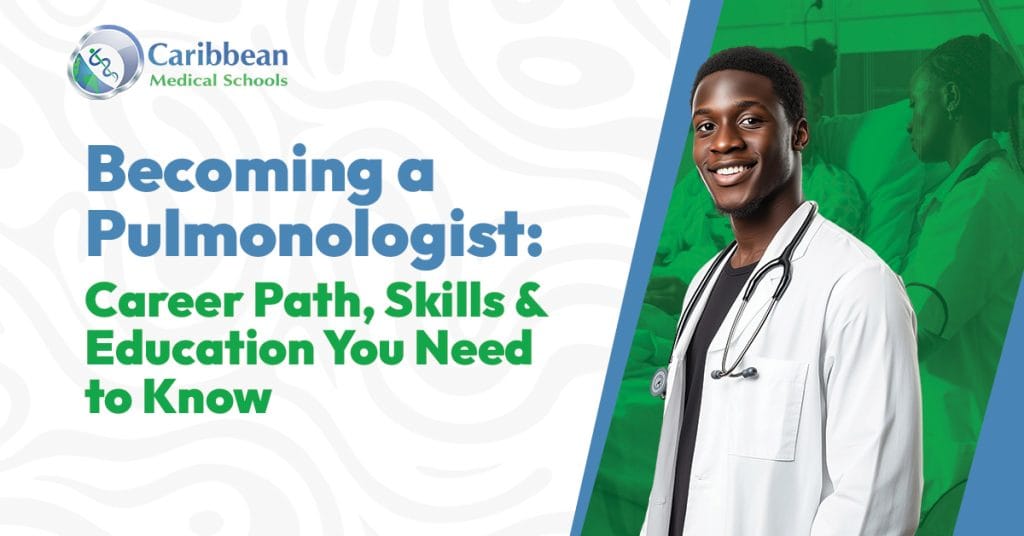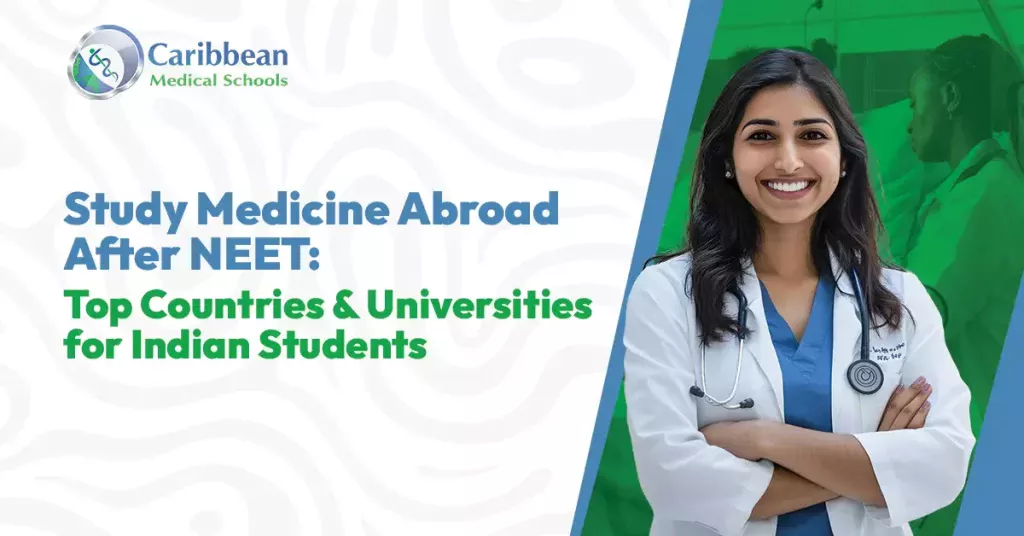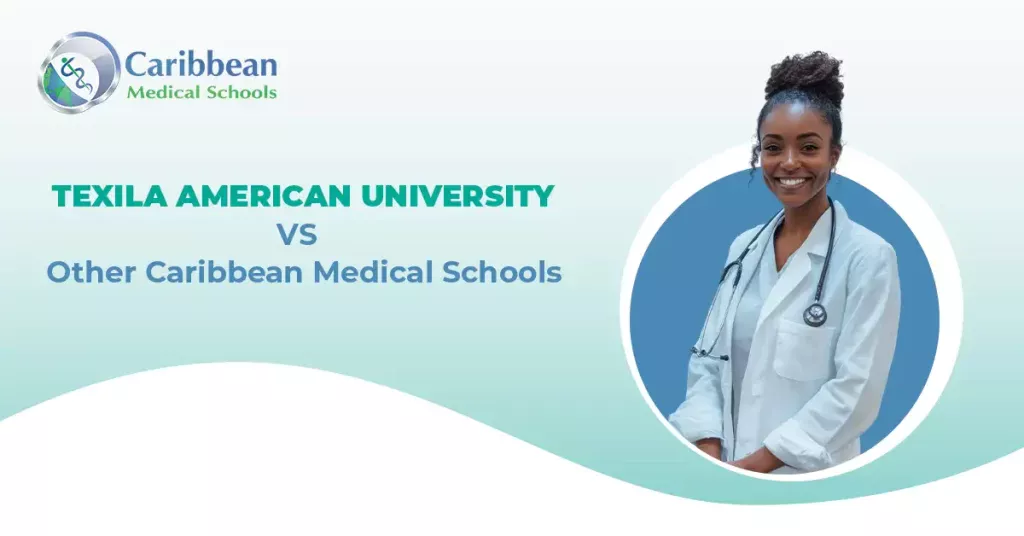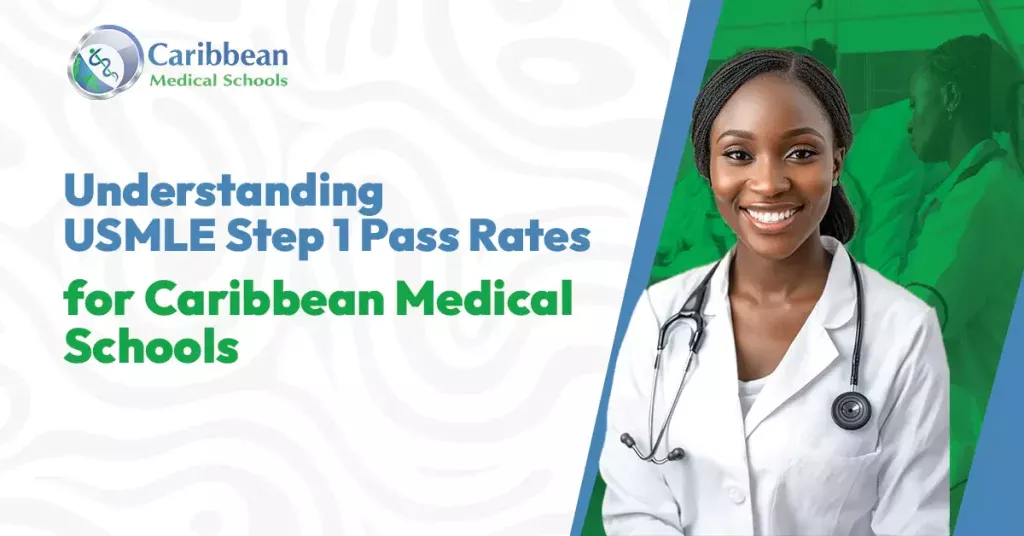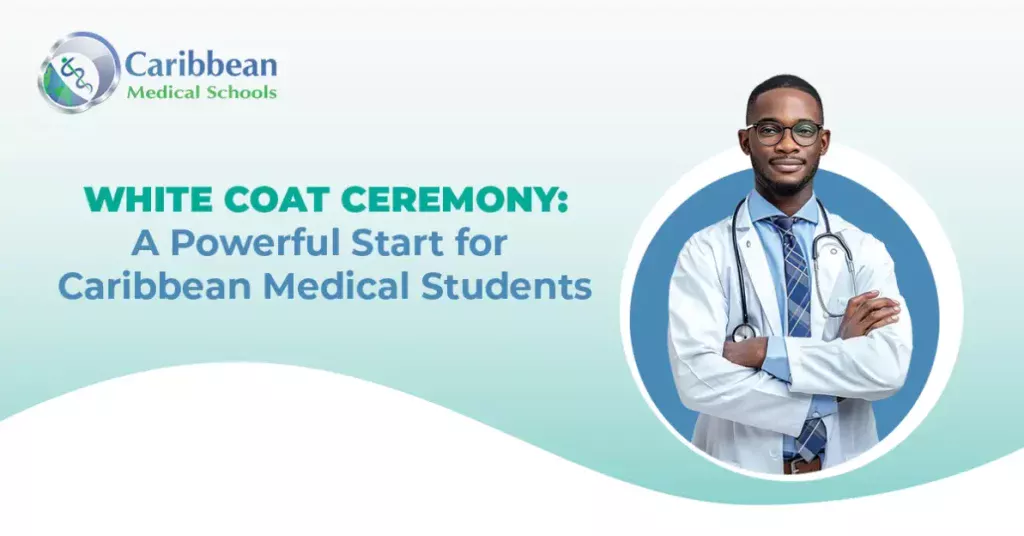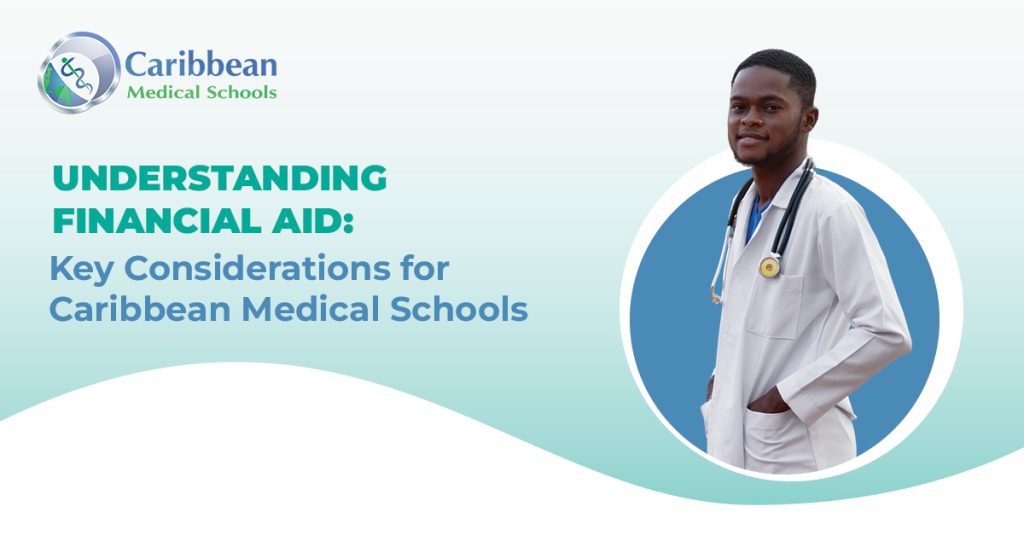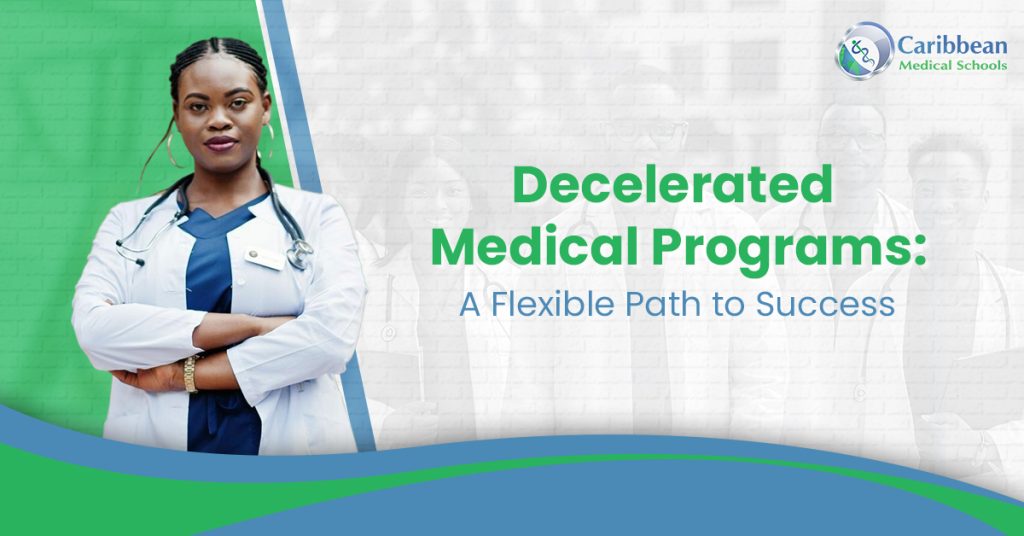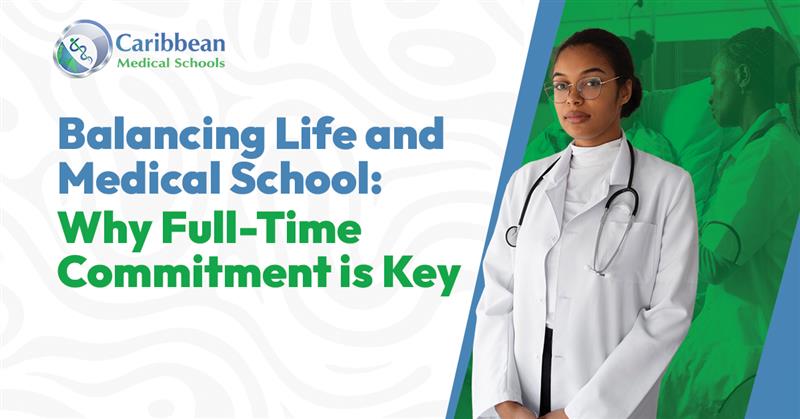Blog Summary
Medical school is one of the most demanding journeys a student can embark on. While the challenges are well-known—long hours, difficult coursework, and emotional stress—some struggles go unspoken. This article dives into the real, often overlooked challenges faced by medical students, particularly those attending Caribbean medical schools. From adjusting to a new culture to coping with financial strain, these hidden hurdles are just as critical as any textbook exam.
Table of Contents
Introduction
For many aspiring doctors, attending medical school is the culmination of years of hard work and dedication. While most are aware of the rigorous academic challenges that come with becoming a doctor, there are many emotional, financial, and social struggles that remain unspoken, especially in Caribbean medical schools. These challenges are rarely addressed, yet they play a significant role in a student’s overall experience. So, what are these hidden struggles, and how can future medical students better prepare?
Cultural Adjustment
Attending medical school in the Caribbean often means adapting to a new country, culture, and way of life. For students from countries like the U.S. or Canada, this transition can be daunting. The local customs, food, and even climate can feel foreign and unfamiliar. While the top Caribbean medical schools offer world-class education, students may still find themselves struggling to adjust.
Much like moving to a new city, cultural adjustment requires time and patience. Some students may feel a sense of culture shock as they adapt to the local environment, which can create feelings of discomfort and homesickness.
Financial Strain
Medical school is expensive, and Caribbean medical schools are no exception. Between tuition fees, accommodation, textbooks, and other living expenses, students can quickly find themselves overwhelmed by financial burdens. Even at the best Caribbean medical schools, scholarships and financial aid may be limited, adding to the stress.
For many students, the financial strain can feel like a constant weight on their shoulders, leaving them to juggle part-time jobs, student loans, and academic responsibilities.
Homesickness and Isolation
Distance from family and friends can be emotionally taxing. Many students experience severe homesickness, especially those attending medical schools on small islands with limited social opportunities. Despite the stunning beaches and warm weather, the feeling of isolation can creep in.
In small Caribbean communities, it can be challenging to find social connections outside the academic setting, leaving students feeling cut off from their support networks.
Intense Academic Pressure
The academic pressure in medical school is, without a doubt, immense. Students are expected to master vast amounts of information in a short time. In the best medical schools, the expectations are even higher, and students often struggle with the constant pressure to succeed.
This pressure can sometimes feel like trying to climb a mountain while carrying a heavy load. Each new exam or assessment adds another layer of stress, pushing students to their limits.
Burnout and Mental Health Issues
Burnout is one of the most common yet least talked about issues faced by medical students. The combination of long study hours, high expectations, and limited downtime leads many students to experience mental exhaustion.
In addition to burnout, students in Caribbean medical schools may face anxiety and depression. These mental health challenges often go unspoken as students are reluctant to seek help, fearing that it will be seen as a sign of weakness.
Balancing Personal Life
Trying to balance academic life with personal responsibilities can feel like walking a tightrope. Many students struggle to maintain relationships with family, partners, or friends while managing their demanding schedules.
With limited time for social activities or relaxation, maintaining this balance becomes nearly impossible. This can leave students feeling disconnected from their personal lives and relationships, adding to their overall stress.
Navigating Clinical Rotations
Clinical rotations are key in medical school experience, but they also come with their own set of challenges. Navigating hospital settings in the Caribbean can be especially difficult, as students often have to adapt to different medical practices, hospital cultures, and even technologies that may not be as advanced as in other countries.
This adjustment can be particularly hard for students from top Caribbean medical schools, where the academic expectations are high, but the practical realities of rotations can be overwhelming.
Uncertainty about the Future
For many medical students, uncertainty about their future careers looms large. Will they match for a residency? Will their degree from a Caribbean medical school be recognized in their home country?
Despite the high-quality education offered by accredited Caribbean medical schools, students often worry about their career prospects. The fear of not being able to secure a residency or job adds another layer of stress to an already difficult journey.
Language Barriers
While most Caribbean medical schools offer instruction in English, students may still encounter language barriers, especially during clinical rotations or when interacting with local patients. The medical terminology may be the same, but the local dialects and communication styles can differ.
For students who aren’t native English speakers, these challenges can be even more pronounced, making it harder to fully engage in their education and clinical training.
Dealing with Failures
Failing exams or struggling in clinical rotations is a reality for many medical students, but it’s often not talked about openly. The anxiety of failing can be overwhelming, and when it happens, students may feel isolated or ashamed.
Dealing with academic setbacks is part of the journey, but many students find it difficult to talk about their failures, which only adds to the mental and emotional burden they carry.
Conclusion
Medical school is a challenging journey, both academically and personally. For students attending Caribbean medical schools, the challenges are often amplified by the unique environment they find themselves in. From financial strain to cultural adjustment, these unspoken challenges shape the medical school experience in ways that are often overlooked. However, understanding and addressing these hurdles, students can better prepare for the journey ahead.
FAQs
What is the most common challenge medical students face?
The most common challenge medical students face is burnout due to the demanding academic workload, long hours, and intense pressure.
How can medical students manage imposter syndrome?
Talking to peers and mentors, setting realistic goals, and building self-confidence through small successes can help manage imposter syndrome.
How can medical students maintain their mental health?
Prioritizing self-care, seeking counselling when needed, staying connected with loved ones, and Building a dependable support network can help maintain mental health.
Do Caribbean medical schools prepare students for residency in the U.S.?
Yes, many Caribbean medical schools have strong track records of placing graduates in U.S. residency programs.
What are the benefits of studying at a Caribbean medical school?
Caribbean medical schools offer smaller class sizes, focused faculty attention, and a pathway to becoming a doctor for students who may not have been admitted to U.S. or Canadian programs.

